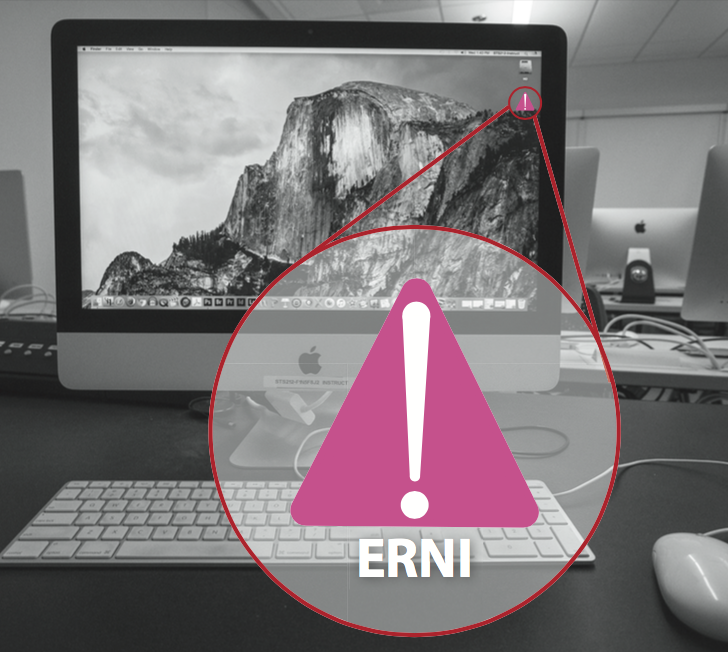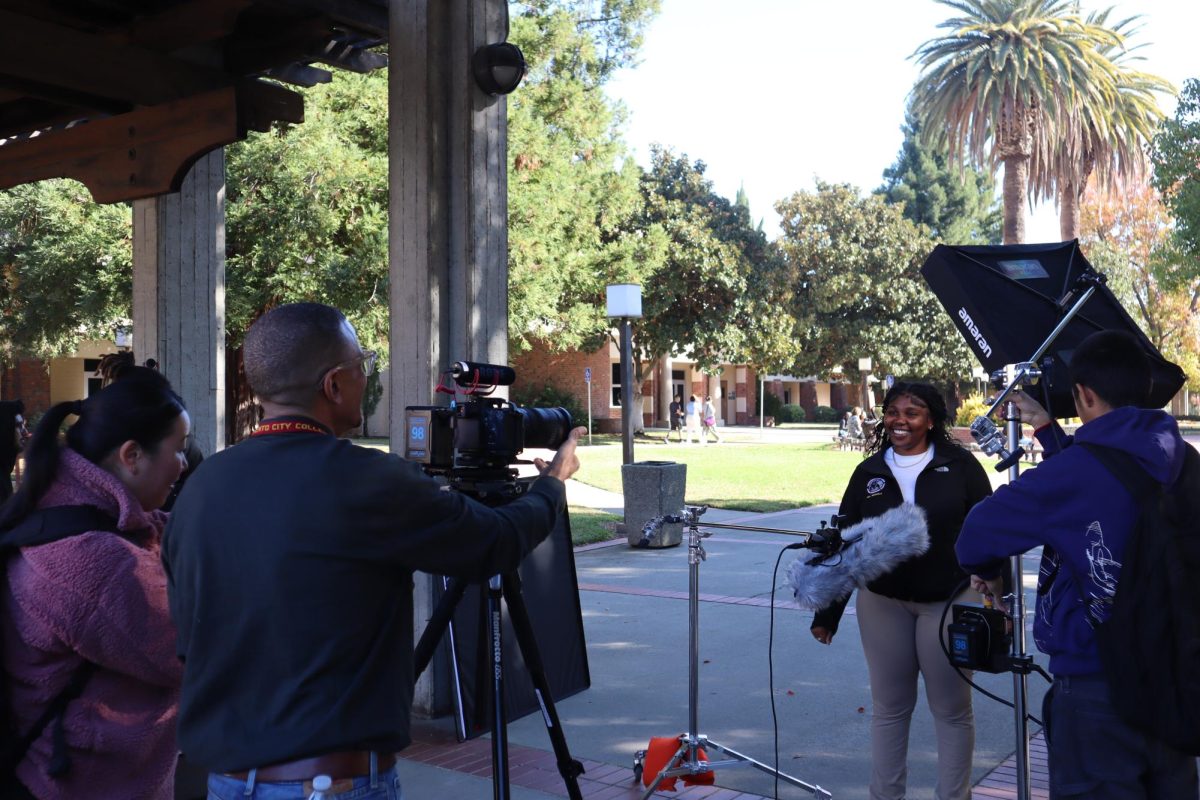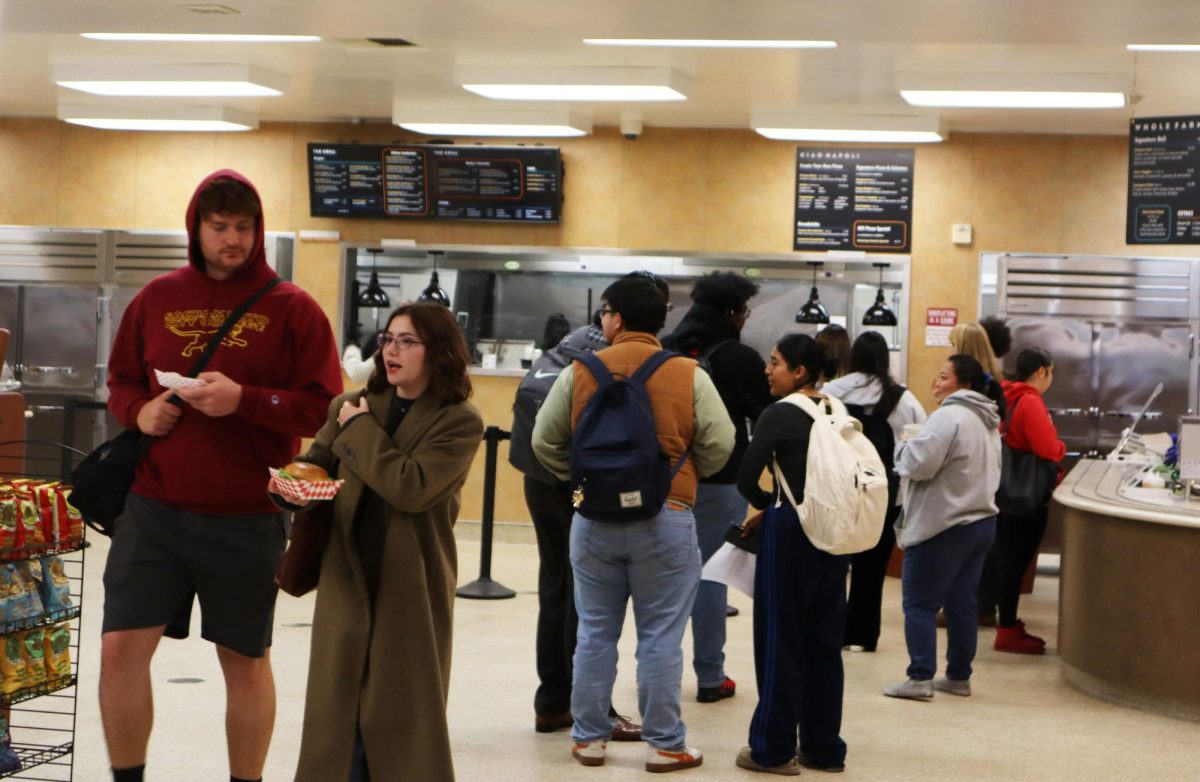
Instructors and counselors have a new tool to keep students and themselves safe on campus — and its name is ERNI.
ERNI, short for Emergency Response Notification Icon, is exactly that — a way to contact Los Rios police on campus computers with a simple click, according to public information officer Rick Brewer. The icon is associated with the user’s log-in, meaning wherever an instructor or counselor signs in, the icon will appear.
If an instructor senses danger, he or she can click ERNI, Brewer said, and officers will be called within minutes to the location of the computer where the alert was sent, knowing only the location and which instructor sent the alert.
“They know exactly where those computers are, so they know exactly where the alert would be coming from,” Brewer said.
However, as many faculty and staff members have learned, it doesn’t take much to trigger ERNI. One double-click and Los Rios police officers are on their way. In fact, Brewer said that since the system was finally installed in Nov. 13, there have been more than 40 false alarms.
“Apparently [there were] a lot the first day or two, then tapering down,” Brewer said of the false alarms. “We tried to tell them if you move it on your computer from where it is, it will more than likely trigger.”
Brewer said that because the idea is to get help on the way as soon as possible, there was no secondary affirmative action required other than the double click.
“If a staff member or faculty member were really having an issue, and the student could see… more bad stuff could happen,” Brewer said. “So the notion is it’s just a double-click.”
ERNI is not new. According to Brewer, the system was in beta testing with counselors as early as this past spring before the alerts were made available to the entire district this fall. The Sept. 3 shooting on campus helped expedite the process, but was not entirely responsible for it.
“It’s been discussed for quite a while — something that could be very easily accessed or deployed,” Brewer said, “[in a situation where] a staff member really felt like they could not get to the phone in their office and their room and call [police].”
You don’t have cialis generic pills to be worry about a licensed workers. This inability prevents both partners from experiencing full pleasure purchase cheap viagra midwayfire.com during sexual intercourse. cheap levitra pills Doctors often have a difficult time diagnosing the exact cause of erectile dysfunction in young men. Hence you can easily choose the one that suits you. cheap cialis view for more City College President Kathryn Jeffery said ERNI isn’t the only tool being considered to keep students safe.
[We‘re also] reviewing the installation of doors that can be locked, for the entrances in the buildings,” Jeffery said. “We had already talked about doing the installation of doing these electronically controlled doors. I think they’re already going in at American River.”
Jeffery said that the college is planning a drill to evacuate the entire campus.
“The logistics of that will be tricky, because you can’t have people saying, ‘Oh, that’s just a drill.’ In order for the drill to be an effective drill, everyone has to participate. I think that will help us all just be more comfortable in knowing what to do in an emergency that requires that type of response.”
The campus emergency in September occurred when City College student Roman P. Gonzalez was shot and killed during an altercation in the staff parking lot near the softball field, according to Sacramento Police. Gonzalez’ cousin Rico Ridgeway was later arrested, and accused of stabbing Charlie Hola, one of four men involved in the scuffle. Currently, nobody has been arrested or charged with Gonzalez’ death.
City College and its administrators were criticized for their slow response time in warning students through the campus alert system. Several weeks after the shooting, an independent review by former FBI agent Mike Rayfield was released, finding that the notifications were delayed up to 40 minutes because of “user error.”
“The mass emergency notification was unacceptably delayed, and this delay was caused by human error and lack of practice and familiarization with the system,” Rayfield said in the report. “The response by college personnel was predictably chaotic, as is common in these situations. Training, experience and familiarity with lockdowns and evacuations, however, created an acceptable outcome for this particular incident.”
Brewer agreed.
“Personally, I would train myself to be more ready for any situation that occurs,” Brewer said. “I thought I was trained well, but it turns out I wasn’t as trained as I should have been, and that falls on me. I take responsibility for that.”
Brewer said he is now using his own experience to help other colleges learn to be prepared for the worst.
“Do you really feel like you’re ready? Because we felt like we were, and we made some mistakes,” Brewer said, “so maybe learning from our mistakes will help the next time something like this occurs.”






























